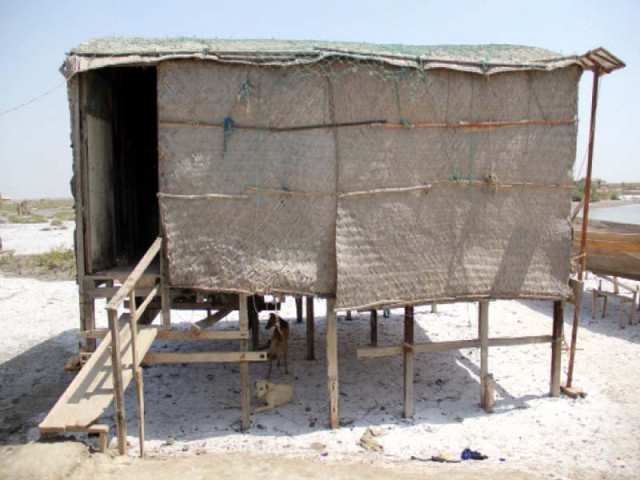Climate change impact women more: environmentalists
Communities inhabiting Indus Delta extremely vulnerable to climate change-induced disasters, say experts

Climate change has affected women living on Indus Delta, particularly those working in agriculture and fisheries sectors, more than men, highlighted environmental experts on Tuesday.
They expressed these views while addressing a seminar titled 'Fostering Coastal Climate Resilience and Empowering Women Food Producers in the Coastal Areas', jointly organised by World Wildlife Fund-Pakistan (WWF-P) and Oxfam in Pakistan.
According to the speakers, the majority of communities inhabiting the Indus Delta are extremely vulnerable to climate change-induced disasters, especially cyclones and coastal flooding. But climatic changes, coupled with economic, social and cultural barriers, make women more vulnerable, they explained. They highlighted that climate change exacerbated competition for limited natural resources and often accelerated human migration, as well as the disappearance of wild species.
Speaking on the occasion, WWF-P regional head in Sindh and Balochistan Dr Tahir Rasheed said that despite its global ecological significance, the Indus Delta was ranked the third most vulnerable delta to climate change. It is at a greater risk of degradation, primarily due to the decrease in river flow, leading to reduction in sediment deposition, seawater intrusion, land subsidence, sea level rise and low rainfall, said Dr Rasheed.
He was of the view that it was usually rural households and particularly women who were most vulnerable to natural calamities due to gender inequalities that make up the country's social fabric.
"Although women are more prone to the adverse impacts of climate change, they have limited representation in development planning," he pointed out. "It is an undeniable fact that women are on the frontline of climate change [impact] and their voice should be heard at national and international levels."
Environmentalist Nasir Ali Panhwar said the delta was once fed by 17 water channels, which had now reduced to just one. Similarly, he added, previously the delta would receive freshwater throughtout the year, but the duration of freshwater supply had now reduced to just two months, August and September, per year.
"This is going to have serious economic, environmental and social implications," he warned. "The limited flow of freshwater is causing environmental degradation and negatively impacting traditional livelihoods, survival and resilience patterns in the presence of high levels of social inequalities."
Hamera Aisha, Manager Conservation, WWF-Pakistan said that the coastal belt of Sindh was highly prone to climate change-related disasters. "Due to the loss of livelihood and resources, local people are migrating to other cities and towns which is putting pressure on urban populations," she said.
Published in The Express Tribune, November 11th, 2020.



















COMMENTS
Comments are moderated and generally will be posted if they are on-topic and not abusive.
For more information, please see our Comments FAQ